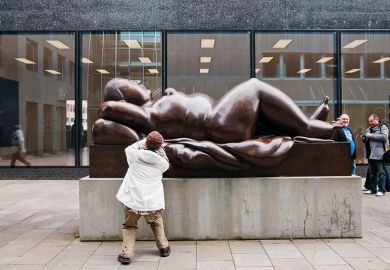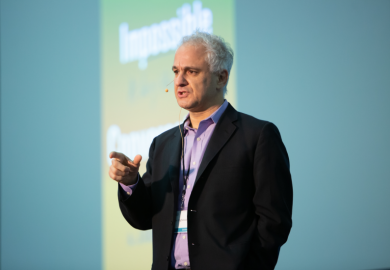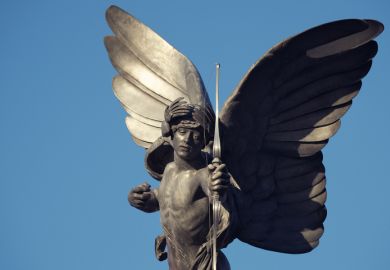Hans-Georg Gadamer lived to see his monumental Truth and Met hod, first published in Germany in 1960, hailed by many as one of the major contributions to 20th-century thought. The work is, through an extended dialogue with the history of philosophy, an exposition of philosophical hermeneutics, where interpretation is shown to be an irreducible feature of human understanding; negotiating the everyday world is analogous to reading a text. Although the hermeneutical art has its origins in ancient biblical interpretation, Gadamer's foremost inspiration was the young Heidegger's radical "hermeneutics of facticity".
Jean Grondin deals with the specifics of early biography in this study in cursory fashion, as though little happened in Gadamer's life before encountering Heidegger. This much we are told: he was born in Marburg in 1900; in 1902, the family moved east to Breslau (now Wroclaw in Poland), where his father took the chair of pharmacology at the local university; early upbringing was difficult and unsettled, especially after the sudden death of his mother from diabetes when he was four. In the teenage years, there was growing friction between the "inflexible Prussian discipline of his (scientist) father" and his own youthful aspirations in the arts and letters, accounting, it is suggested, for the suspicion of natural sciences running through Truth and Method . "Truth or Method" could be an alternative title.
After studying German literature at Breslau and classical philosophy at the University of Marburg, with the celebrated neo-Kantian Paul Natorp, Gadamer progressed to Freiburg, where Heidegger's revolutionary ideas were rapidly gaining a reputation. He served as his mentor's assistant, first in Freiburg and later in Marburg in the early Twenties. Spellbound by his charismatic teacher, the eager scholar sought to impress but was soon rebuffed. "If you cannot summon sufficient toughness toward yourself," said Heidegger, commenting on Gadamer's research, "nothing will come of you."
Utterly crushed by this personal slight, he switched from philosophy to more philologically oriented studies. The damage was done: Gadamer remained philosophically inert for many years due to feelings of self-doubt after the rebuke. "For a long time, writing tormented me," came a confession in later life, "I always had the damned feeling that Heidegger was looking over my shoulder."
Both philosophers worked in Germany during the Third Reich, but whereas Heidegger's tangle with National Socialism is well documented, Gadamer's involvement is sketchy. The official version, with which Grondin largely concurs, is that, initially on a very modest income, Gadamer worked diligently throughout the war years, keeping a low profile and accepting incremental academic advancement when it came his way. After the war, because he had avoided formal connection with the National Socialist Party, "denazification" was unnecessary. This was not the case with Heidegger, who was prevented from teaching for five years. So untainted was Gadamer that he was made rector of the University of Leipzig in the immediate postwar period of reconstruction.
Grondin takes to task recent studies where there is the suggestion of a murkier past. He scrutinises the evidence supporting the claims of Teresa Orozco and Richard Wolin that certain activities during the Third Reich suggest a closer relationship to Nazism than ever admitted publicly. The "evidence" is this: Gadamer gained professorial positions by unscrupulously taking over posts of "furloughed", that is sacked, academics of Jewish descent; he attended a Nazi summer school for teachers; he gave a lecture on Herder (the "father of German nationalism") in Paris during the occupation; and the 1934 essay "Plato and the poets" succoured fascist notions of the state. Grondin deems Orozco's work a "witch-hunt" and offers plausible explanations to counter the various charges. Further, he adopts a basic sympathy with his subject's self-interpretation. When quizzed about this period, Gadamer responded that as a liberal he disliked the regime, stood by his Jewish colleagues and friends, and was left alone by the Nazis for they had no use for philosophers.
Throughout the war years there was little contact with Heidegger but later a personal friendship blossomed, lasting from the late Forties, when Gadamer was professor of philosophy in Heidelberg, to the time of Heidegger's death in 1976. Heidegger's rehabilitation from postwar isolation was due in part, Grondin suggests, to Gadamer. He organised the 1949 festschrift for Heidegger's 60th birthday and was responsible for frequent invitations to lecture in Heidelberg. But the master-pupil relationship endured, and Gadamer's "awe" in the presence of his former teacher clearly irked his own students.
Despite close attention to the relationship with Heidegger, Gadamer the man never fully comes alive in this study. In his defence, Grondin says his project is intellectual biography, where "the private sphere will remain excluded, insofar as it has no significance for the intellectual aspects of Gadamer's biography". In support of his position he cites Heidegger's extraordinary claim that "the personality of a philosopher is of interest only to this extent: he was born at such and such a time, he worked, and died".
I suspect there is a more mundane reason for a lack of personal detail.
Gadamer was the biblical age of 102 when he died recently, and certainly well into ripe old age when Grondin commenced this study. Interviews may have, on occasion, elicited no more than distant memories and vague recollections.
This work, translated by Joel Weinsheimer, is by no means an "authorised biography" - modesty, Grondin tells us, made Gadamer initially reluctant to participate in the project. Eventually, he gave the work his cautious blessing, making available "otherwise restricted archives, documents and correspondence". But how selective was Gadamer with material? A more rounded picture will come to light only when the complete correspondence, no doubt a colossal work, is eventually published.
It would be unfair to dismiss this study as mere hagiography. Sympathetic to its subject it certainly is, but the book is carefully researched by one of the leading scholars in the field and offers a useful assessment of this important philosopher's life and work.
Chris Lawn is lecturer in philosophy, Mary Immaculate College, University of Limerick, Ireland.
Hans-Georg Gadamer: A Biography
Author - Jean Grondin
Publisher - Yale University Press
Pages - 512
Price - £25.00
ISBN - 0 300 09841 3
Register to continue
Why register?
- Registration is free and only takes a moment
- Once registered, you can read 3 articles a month
- Sign up for our newsletter
Subscribe
Or subscribe for unlimited access to:
- Unlimited access to news, views, insights & reviews
- Digital editions
- Digital access to THE’s university and college rankings analysis
Already registered or a current subscriber? Login



